Former Allegheny athletes reflect on passion and struggle
At 6 a.m., you lift five more pounds than the week before. At 7 a.m., you eat a bagel, and at 8 a.m., you click a pen as you place your biology notebook on a desk in Carr Hall. You repeat until the season changes, and your highly regimented schedule changes with it.
Most collegiate athletes have spent more than half their lives training for sports they love and are no strangers to routine preparation. Such preparation can generate extreme focus and can be useful for athletes balancing competition and undergraduate coursework.
Even difficult routines become comfortable, and disrupted comfort can cause entire perspectives to shift. One devastating game, match or meet can awaken overwhelming gratitude.
“When you’re young and you’re growing up, every kid is like this — they think they’re invincible,” said Logan Cala, ’18. “To this day, I still — in a sense — think I am, and until you get that one bad injury, you’re going to think like that.”

Cala started playing football when he was eight years old and eventually dedicated his time to the game at Cardinal High School in Middlefield, Ohio. Growing up training for and growing in the sport, Cala said he developed a special connection to football because of the atmosphere of comradery surrounding it.
When he arrived at Allegheny in 2014, Cala played offensive line as a center and guard and earned a starting position in his junior season in 2016. Cala said the same comradery he loved in high school was an important part of his Allegheny football experience.
“It’s competitive. It’s dangerous, but what I like about it is it’s not an individual sport. Everything has to work together,” Cala said. “To me, it’s like an engine. All the pistons have to fire at the same time to be a successful team. You’re there for your teammates. You’re pushing them. They’re pushing you.”
During a game in the third week of his junior season, Cala said he was blindsided after the Gators threw an interception and suffered a concussion. Cala suffered a mild concussion and minor injuries playing football in high school, but this 2016 concussion was severe and affected his academic performance and motivation, Cala explained.
“At first, it was really tough because football had been my life for 14 years, and when I stopped, I honestly got a little depressed,” Cala said.
While he had more time to focus on campus activities and academic work, and he earned his highest semester GPA last spring, Cala said he was not permitted to be physically active in the weeks following the concussion.
Cala said he gained weight after some time away from football because of that inactivity and realized he also needed to focus on personal nutrition and fitness goals.
Cala’s decision to step away from football has allowed him to focus on such goals and activities, and he said it has not negatively impacted his relationships with former teammates. Cala said he enjoyed experiencing Allegheny football from the stands in the 2017 season and was glad to support the Gators as a retired athlete.
“I hate to say that I quit football. I hate quitting, so I always tell people I retired,” Cala said. “I wish I could’ve finished out my last year, but I stand behind my decision. What would have happened if I would have gone out there and gotten another concussion?”
Head Football Coach B.J. Hammer said football has evolved, and coaches must evolve with it to help prevent player injury.
“We don’t practice full pads We don’t go to the ground and we do a lot of what we call thud, high-tempo practices, so we take care of our players in that sense,” Hammer said. “It’s football, so it’s going to be competitive, but still you’ve got to be smart.”
Brian Hill, ’19, also finished his collegiate football career in 2016 during his sophomore season at Allegheny.
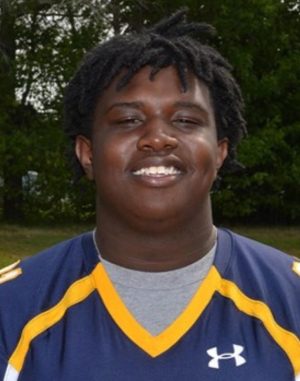
Hill said he has suffered six concussions from playing football, the sixth being the most severe during a game against Kenyon College in Gambier, Ohio in 2016.
Hill’s decision to retire involved a consultation with a neurologist in his hometown, Cincinnati, Ohio, speaking to his coaches and speaking with his mother.
“It was really devastating to my mother,” Hill said. “She always hated concussions, and she was still traumatized from the first one I got in high school when I left the field in the back of an ambulance.”
Hill estimates the effects of the sixth concussion — which included sensitivity to lights and projectors — lasted at least one month and the effects of the whiplash he also endured with that concussion lasted nearly six months.
Hill described his concussion experiences as “traumatic” and has avoided watching the 2015 film, “Concussion,” which details the life and work of Bennet Omalu and his research on professional American football players and head injuries. The film was screened by the Neuroscience Club in Quigley Auditorium on Feb. 25.
“I’m actually terrified to see it,” Hill said.
Hill said he worries about his friends and former teammates each time they step onto the field and has found himself feeling the way his mother felt, watching players fall and breathing in relief when they finally stand.
“It’s not something I’d wish on anybody,” Hill said. “And not just concussions, other injuries as well. Sometimes it’s hard to watch — you know you always worry — I feel like a concerned parent on the sidelines.”
Hill now supports the team behind a camera, using his communication arts skills to film practices and games. Hill said he made a commitment to the team when he came to Allegheny and although he no longer serves the program as a player, he wants to contribute his other talents.
“He does a lot of filming and different things, but what he does more than that is he works with a lot of our young, incoming freshmen on time management skill development and how to be a good student here — he’s a good example for them,” Hammer said of Hill.
Although Hill remains an active team member off the field, he said losing football from an on-field athlete’s perspective was especially difficult.
“I felt like I had lost a huge part of my identity,” Hill said. “There’s multiple parts of me, and I didn’t realize how much of my identity relied on the fact that I was an athlete.”
Hill and Cala said they understand the decision to continue playing football with an injury or concussion history is deeply personal and should consider the player’s individual health risks, but no decision can completely erase a player’s memories and experiences.
“You gain a lot of really unique bonds through the shared suffering because it’s hard. You’re lifting early in the morning, and you grow very close to people,” Hill said. “Sometimes — while you’re always playing to win — sometimes you just look over and you feel like ‘I’m playing for the guy next to me.’”
Hill also emphasized the importance of establishing a personal understanding of football’s lessons while being aware of risks before beginning an athletic journey or making a decision based on an injury.
“I’m thankful that it wasn’t as severe as it could have been, because it could have been a lot worse,” Hill said. “Don’t get me wrong, it was really bad, but it could have been a lot worse.”



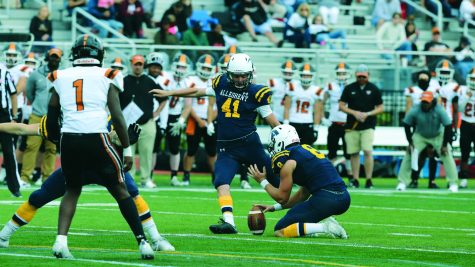
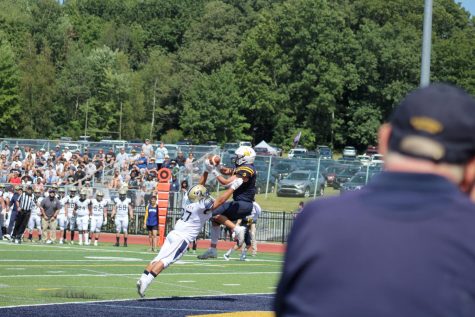


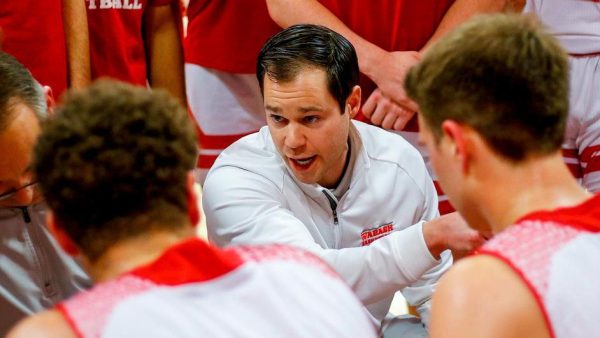
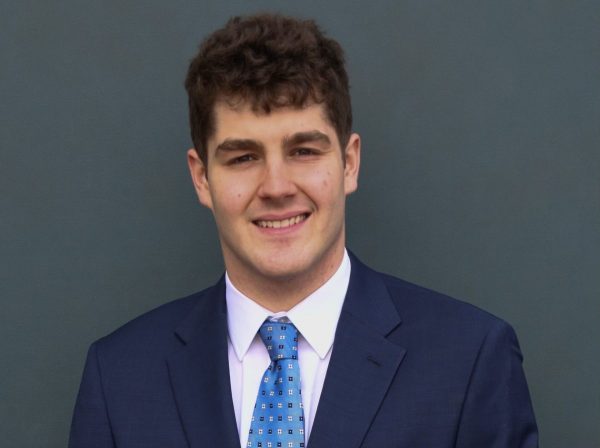
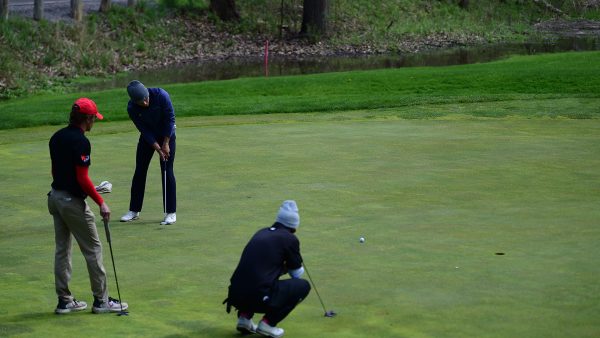

Jay Myers • Mar 1, 2018 at 7:05 pm
Here’s a new non-contact, non-flag alternative to tackle football. Designed to be more challenging to play, more exciting to watch than the tackle game. Fast, intricate, almost non-stop action. Intro w/diagrams http://bit.ly/ClermontRF0218 Detailed description http://www.clermontrules.blogspot.com